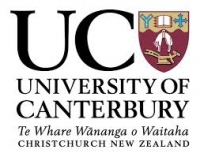






History is more than the study of the past; it is a living creative act. History explores past events in order to inform us about who we are and what is happening today. History gives us our cultural roots. It helps us understand ourselves, our neighbours, our nation, other cultures and the world, enabling us to become truly global citizens. We learn a lot from history, and this knowledge helps us to avoid the mistakes of the past and make better decisions for the future, just as we learn from our own experiences. Studying History supplies students with the skills to analyse complex evidence, present evidence-based arguments and put things in perspective. Such skills developed from studying History can be applied in many careers, as well as to all walks of life. History is a big subject, at the very heart of the humanities. Everything has a history, and every history can be challenged by a fresh mind. Some types of history and historical evidence are also part of the social sciences, such as Political Science and International Relations, Sociology, and Law (which is a form of 'applied history'). The study of languages and literature is enhanced by knowing about their cultural and historical contexts. Historians too, often use techniques and results from other disciplines. History is a supremely interdisciplinary subject.
| Number | Duration |
|---|---|
| 3 | year |
History graduates leave university with a distinctive mix of skills which are useful in almost any job involving discovery, analysis, interpretation, independent thought and communication. Studying History allows you to practise making balanced and impartial judgements, considering multiple perspectives and materials. The Department of History places great importance on training students in research, writing, digital skills and oral presentation. These are the general skills employers most want. History graduates enjoy a wide variety of career destinations including those in the media (such as journalism and broadcasting), government, Treaty of Waitangi affairs, international relations, arts, culture, heritage, archives, politics, public policy, writing, editing, PR, communications, conservation, tourism, teaching, community development, digital industry, publishing, design, business innovation, advertising or marketing.